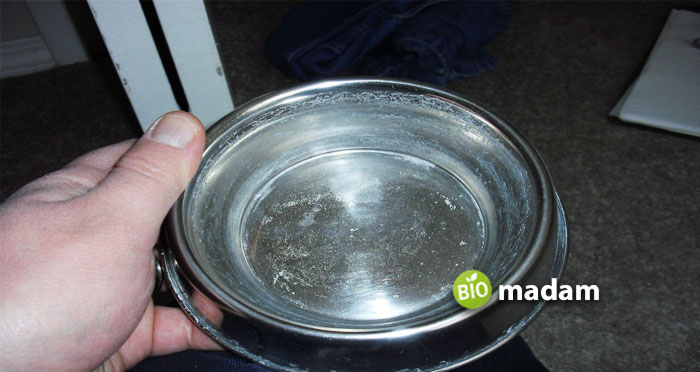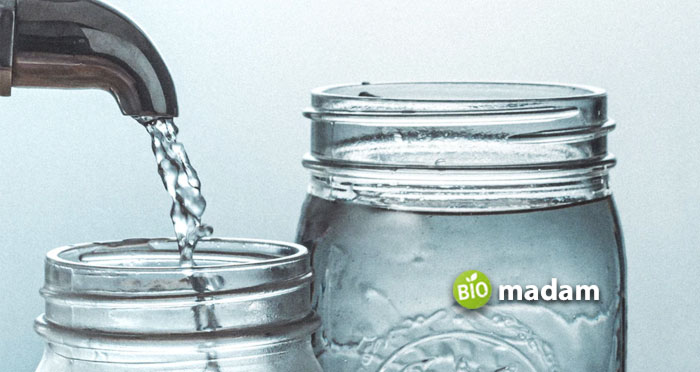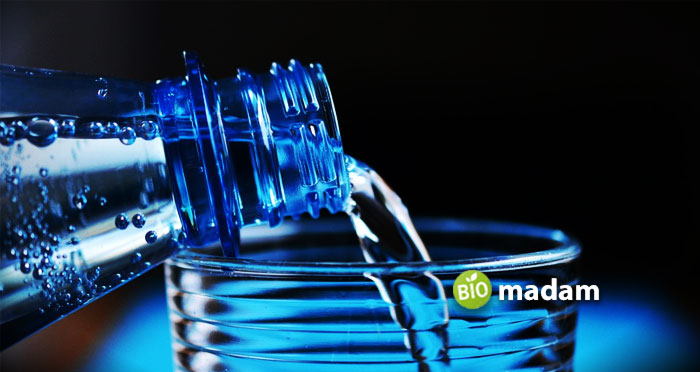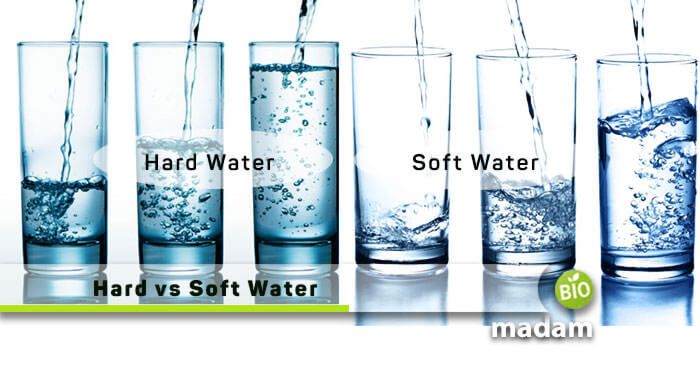Did you go through the words “hard water” and “soft water?” Are you curious to know the difference between hard water and soft water?
You must have encountered the softness or hardness of water at any point in your life. Most people have seen grumbling about dirty items or their skin getting worse day by day. It is all because of the water they are utilizing every day, which can be hazardous. So, it is necessary to grab detailed knowledge about these water types, the major factors behind their softness/hardness, etc.
We’ve covered below the difference between hard water and soft water in points, their brief descriptions, and identification between the two for your better understanding.
Comparison Chart
Before starting the article in detail, let’s look at the quick comparison table between the two!
| Basis of Comparison | Hard Water | Soft Water |
|---|---|---|
| Definition | Impure water containing more mineral substances in it | Impure water with comparatively fewer mineral substances |
| Taste | Distinctive taste | Salty taste |
| Reaction with Detergents | No lather formation with detergents | Forms lather with detergents |
| Effect of Soap | Formation of the film (least effective) | Formation of foam (more effective) |
| Ions Included | More calcium & magnesium ions | Sodium ions |
| Formation Process | When water runs through chalk & limestone, hard water is produced. | An ion-exchange resin is used to pass hard water on it. |
| Utilization of Soap | A lot of the soap is wasted in the washing process | Soap is not wasted |
| Bubble Formation | Almost no bubble formation | Lots of bubbles produced on top of clear water |
What is Hard Water?

The impure water rich in minerals, such as magnesium and calcium, is called hard water. There is a proper procedure for the formation of hard water. It is prepared when water passes over limestone and chalk, ultimately appearing in magnesium and calcium carbonates. The dissolved minerals lead to the hardness of water, a parameter to analyze if it is soft or hard water. All minerals have their specific taste, so do calcium and magnesium. Hence, hard water appears with its distinctive flavor.
Nowadays, industries are taking more advantage of the minerals present in them, and the benefits can vary from situation to situation. Soap doesn’t influence hard water much as it produces a film instead of foam. There are usually two types of hard water, such:
Temporary Hardness
As the name indicates, temporary hardness doesn’t last for long. It produces by bicarbonates that can readily mix in water (typically calcium and magnesium carbonates). When you dissolve it in water, the minerals form cations (calcium & magnesium) and anions (carbonates and bicarbonates). One can get rid of temporary hardness either by the addition of lime or through a boiling process.
Permanent Hardness
The magnesium and calcium sulfates and chlorides are the key reasons behind the permanent hardness of the water. These substances do not quickly expel when heated, so the permanent hardness is difficult to eliminate by boiling. One can utilize ion exchange columns from ion exchange chromatography, or water softeners to remove this hardness. Furthermore, the best part about ion exchange resins is replacing the permanency of hard water with sodium ions. Moreover, when the hard water is reacted with lime, its permanent hardness is removed.
What is Soft Water?

Soft waters are comparatively beneficial and do not directly destroy your living. These contain sodium ions in rich quantities and are more generous towards the human body. Moreover, soft waters have the advantage of preventing scale buildup on home appliances.
Soaps are more effective in soft waters than hard waters as they produce foam. If you are facing dryness or worse skin conditions due to any reason, soft water is a desirable choice. It will help you deal with all the skin issues and make them smoother. Not only this but these days, industries are using Culligan’s Water Softener technique to achieve more efficacy in less time.
Identification of Hard Water and Soft Water
Now the question arises, how can a person differentiate between the two? Let’s discuss the chief signs of these waters below:
Hard Water
Clear Spots: Hard water produces spots on silverware or glasses out of dishwashers. These spots are actually calcium carbonate deposits.
A Sense of Film on Hands After Washing: When the soap reacts with calcium, it forms scum, leading to film formation. One might have to wash his hands repeatedly if it is hard water.
Causes Decrease in Water Flow of Your Home: Hard water forms mineral deposits of calcium & magnesium, which can decrease the internal diameter of your home pipes. It results in the reduction of water flow due to low pressure.
Mineral Stains: If you observe some mineral stains on your clothes after washing them, it’s because of hard water. The hardness of this water can make your clothes’ color fade more quickly.
Soft Water
Healthy Froth: You will eventually feel a healthy froth of soft water while cleaning dishes, clothes, and on your body.
No Reduced Water Flow from Home Pipes: Soft waters don’t affect the diameter of pipes, so there is no reduced water flow.
Comparatively Cleaner Cloths: There is no stains formation, and you will observe comparatively cleaner clothes after washing with soft water.
The difference in Taste: Soft water has a trivial taste due to the presence of sodium ions.
Hard Water vs Soft Water – Primary Differences
You’ll get multiple factors when checking the hard vs soft water. We have enlisted the primary of them below:
Definition
Hard Water
The form of water having high calcium and magnesium content in it is called hard water.
Soft Water
The form of water having low mineral content (sodium ions) in it is called soft water.
Method of Preparation
Hard Water
When the water runs through a mixture of chalk and limestone, hard water is formed.
Soft Water
Soft water results after the hard water cross an ion exchange resin for alterations.
Taste
Hard Water
This type of water appears with a distinctive taste due to the minerals in it.
Soft Water
Soft water has a characteristic salty taste due to sodium ions.
After Effects
Hard Water
Hard water can bring harshness to your body and also demands a lot of soap to kick off any dirt on your skin or mineral deposits from your clothes.
Soft Water
On the contrary, soft water is well-known for the formation of healthy lather. Furthermore, it produces a smooth and silky effect on one’s skin.
Influence of Soap Used
Hard Water
Using a bar of soap is the least effective in the case of hard water. It produces a film instead of foam which is not beneficial.
Soft Water
A proper foam or froth is produced with soft water, which is advantageous for your skin.
Which Type of Water is the Best for Drinking?

If you have read the difference between hard and soft water, you must have concluded that both have their own benefits and drawbacks. But, people do question, “Can you drink soft water or hard water?” Neither of them is life-threatening. One of the research states that there are many benefits of drinking hard water. So is the case with soft water!
Hard water contains the maximum quantity of calcium and magnesium ions, reducing the risk of high blood pressure, heart attacks and also making your bones strong. On the other hand, soft water is actually distilled water known to produce smooth effects on your skin. One can utilize both of them, depending on their needs.

Meet me; I am Paulina Zaniewska, who’s more hooked on providing the best health blog. I’ve always been so determined to compete as a nutritionist, and here I am, done with a Master’s in food technology. My brilliant performance throughout encouraged me to help people.


It’s interesting to know the difference between hard and soft water and how the former is helpful to reduce some health problems like high blood pressure but the latter promotes healthier skin. Now, I wonder what our water condition is at home. I think I just call treatment services to check and let them give me advice on what’s the best kind of water for the needs of my family.